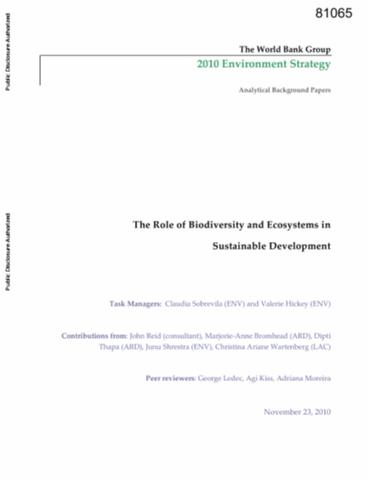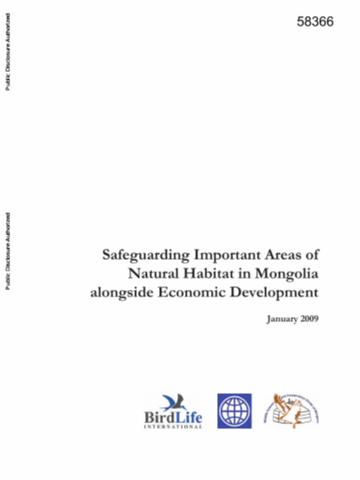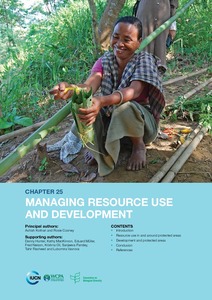The Role of Biodiversity and Ecosystems in Sustainable Development
Biologically diverse ecosystems in countries served by the World Bank provide an array of valuable economic services. While the benefits of conserving ecosystems frequently outweigh the costs, conversion of these ecosystems to other uses occurs anyway, because many ecosystem benefits are of a public good nature, without markets that would reflect their real value.






